Selling workflow automation solutions in healthcare comes with unique challenges, particularly when navigating the dynamics between clinical and IT teams. While clinicians often champion new technology because of its impact on efficiency and patient care, IT teams are tasked with ensuring seamless integration, security, and compliance within already complex infrastructures.
This blog explores how Medaptus overcomes common IT roadblocks in healthcare SaaS sales by building strong clinical partnerships, addressing IT concerns early, and providing ongoing implementation support. From tackling questions about SSO and security to aligning with HIPAA regulations, Medaptus ensures that its solutions not only improve hospital operations but also meet the highest standards of compliance and data protection.
In healthcare SaaS sales, particularly when it comes to workflow automation solutions like our morning patient distribution solution, IT roadblocks can present significant challenges. These roadblocks often stem from the complexities of integrating new software into an already crowded IT infrastructure.
By understanding these challenges and building strong relationships with the right stakeholders, medaptus successfully navigates the sales cycle and ensures its solution gets the green light.
Understanding the Dynamics: Clinical vs. IT Teams
A key hurdle medaptus faces in healthcare software sales is the difference in priorities between clinical and IT teams. Often, clinical staff are the drivers of interest in our software because of its potential to streamline operations, improve patient care, and reduce administrative burdens. However, IT teams are not typically the buyers. For them, our software may appear to be “just another project” – more work without clear benefits to their own workflows.
This makes it critical to engage clinical champions early in the process. These leaders understand the value medaptus can bring and can advocate for the solution to the IT department, helping push the project forward. Building strong relationships with clinical stakeholders is a cornerstone of our strategy, as they are the key to navigating the often-complex healthcare sales landscape.
Pre-Sale: Building the Case
Before we even get IT involved, we conduct solution demos to clinical leaders to determine if medaptus is the right fit for their organization. If the clinical team is on board, we will then bring in IT for further evaluation.
At this stage, the process shifts from showing clinical benefits to addressing IT concerns. A detailed evaluation begins, which typically includes:
- Technical Footprint: Ensuring that medaptus integrates seamlessly with the hospital’s existing systems without requiring extensive resources or time.
- Security Risk: Demonstrating that medaptus complies with all relevant HIPAA requirements for storing, sending, and accessing PHI data securely.
- Project Scope: Assessing the project’s scope, its impact on hospital operations, and the number of patients and staff affected.
- Resource Needs: Identifying key players, such as network and interface engineers, security personnel for Single Sign-On (SSO) configuration, and registration staff.
Evaluation Phase: Addressing Common IT Concerns
During the evaluation phase, IT teams often raise several common questions. These include concerns about:
- SSO and Security: What if our protocols don’t align with an organizations’ corporate security standards?
- Outbound Interfaces: Could IT teams deny certain parts of our application if they feel it won’t integrate smoothly with existing systems?
- Compliance with Corporate IT Security Requirements: Is meeting an organization’s specific security and encryption protocols doable?
Medaptus addresses these questions by maintaining a flexible, cooperative approach. We work closely with hospital IT teams to ensure that our software integrates efficiently while meeting all security and compliance requirements. We aim to alleviate concerns before they become barriers to a signed contract.
Post-Sale: Seamless Implementation and Ongoing Support
Once the contract is signed, the real work begins. The implementation process typically takes about three months and starts with assigning staff members to certain parts of the process and solution. We work closely with hospital staff, assigning network engineers, security experts, and other key players to ensure everything runs smoothly.
Beyond implementation, medaptus provides ongoing support to ensure the application functions optimally. This includes regular software updates, troubleshooting for downtime or issues, and a clear point of contact for the hospital to reach out to when needed.
Navigating the SaaS Sales Cycle in Healthcare: medaptus’ Success Formula
Medaptus can successfully navigate the often-tricky healthcare SaaS sales cycle by understanding the dynamics between clinical and IT teams. Our focus on building solid clinical relationships, addressing IT concerns early in the evaluation process, and offering ongoing support ensures we can overcome roadblocks and deliver value to healthcare organizations.
FAQ
1. Why is it challenging to sell SaaS workflow solutions in healthcare?
Healthcare IT infrastructures are often complex and tightly regulated. While clinicians may see immediate value in solutions that improve workflows, IT teams must evaluate security, compliance, integration, and resource needs. This can slow down the sales cycle unless both groups are engaged early and effectively.
2. How does Medaptus engage both clinical and IT stakeholders?
Medaptus begins by building strong relationships with clinical leaders who understand the solution’s impact on efficiency and patient care. Once clinical buy-in is secured, IT teams are brought into the process. From there, Medaptus addresses IT-specific concerns around technical footprint, security, and compliance.
3. What is the typical implementation timeline for Medaptus solutions?
Most implementations take about three months. During this time, Medaptus partners with network engineers, security staff, and registration teams to ensure smooth integration with existing systems. Post-implementation, Medaptus provides ongoing support, software updates, and troubleshooting.
4. What are Medaptus’ data security policies?
Medaptus follows strict data security policies designed to protect patient information at every stage. This includes robust encryption for data in transit and at rest, secure authentication and access protocols (including support for Single Sign-On), and regular security audits. Medaptus also works closely with hospital IT teams to align with corporate security requirements, ensuring compliance with each organization’s standards.
5. How does Medaptus align with HIPAA regulations?
All Medaptus solutions are fully HIPAA-compliant. This means that Protected Health Information (PHI) is securely handled according to federal regulations governing privacy, security, and access. Medaptus maintains strict safeguards to prevent unauthorized access, ensures secure data transmission and storage, and provides hospitals with the tools they need to remain compliant while streamlining operations.
Learn more here on how we differentiate ourselves from the competition when we implement with healthcare organizations 6 Things That Differentiate Our Implementation Process From Others.
Get the latest updates and news delivered to your inbox.
Subscribe to our newsletter today.





